Tired of Flares? Try This Eczema Diet to Calm Inflammation
Discover how an eczema diet can calm flare-ups and reduce skin inflammation. Learn the best foods to eat, what to avoid, and lifestyle tips for healthier skin.
Dr Priya Gill
9/23/20253 min read
Eczema Diet to Calm Inflammation
If you’ve been struggling with eczema or psoriasis, you know the frustration of flare-ups that just won’t go away. The redness, itchiness, and discomfort can be overwhelming — and while creams and medications help, the solution isn’t always just skin-deep.
That’s where an eczema diet comes in. What you eat can either fuel your symptoms or help calm the fire from within.
Why Diet Matters in Eczema & Psoriasis
Eczema and psoriasis are both inflammatory skin conditions. Flare-ups are tied to your body’s immune response. Foods that increase inflammation can make symptoms worse, while an eczema diet focuses on anti-inflammatory foods that soothe and protect your skin.
Think of your diet as a toolkit: every bite either adds fuel to the fire or helps put it out.
What to Eat on an Eczema Diet
1. Omega-3 Rich Foods
Omega-3 fatty acids are powerful anti-inflammatory nutrients that help regulate your body’s immune response. For people following an eczema diet, they can ease skin dryness, reduce itchiness, and support overall skin barrier health.
Best sources: Salmon, mackerel, sardines, walnuts, chia seeds, flaxseeds.
Tip: Aim to include fatty fish 2–3 times a week, or sprinkle chia/flax seeds into smoothies, oatmeal, or salads daily.
2. Antioxidant-Powered Foods
Oxidative stress — when free radicals damage your cells — can worsen eczema flare-ups. Antioxidant-rich foods protect your skin cells and calm inflammation from within.
Best sources: Berries (blueberries, raspberries, strawberries), leafy greens (spinach, kale), turmeric, broccoli, bell peppers.
Tip: “Eat the rainbow.” Adding a variety of colorful vegetables and fruits ensures you get a wide range of antioxidants to support skin repair.
Foods to Limit in an Eczema Diet
While everyone’s triggers are different, many people with eczema find relief by cutting back on:
Processed foods high in refined oils or preservatives
Sugary snacks and drinks that spike inflammation
Dairy products, if you notice flare-ups after consuming them
This is why following an eczema diet can make such a big difference — it emphasizes nourishing whole foods over potential triggers.
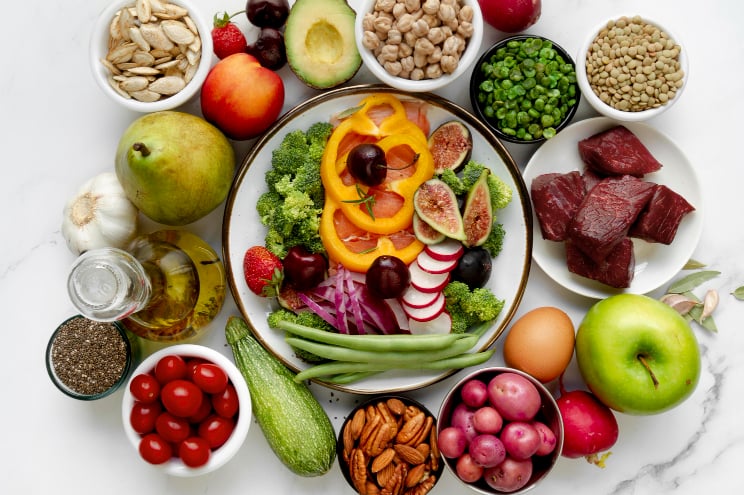


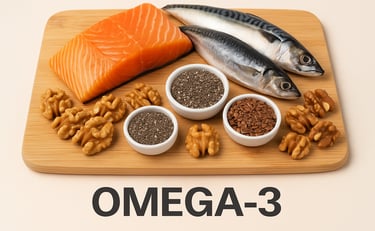


Need Help Personalising Your Diet or Skincare?
Don’t let misinformation guide your skincare. Consult the experts at Ranjit Skin & Hair Specialist Clinic and get a personalised acne treatment plan that works.
Book your consultation today. Your skin deserves the truth—and expert care.
Whatsapp at +60 12-279 4980 to make an appointment!
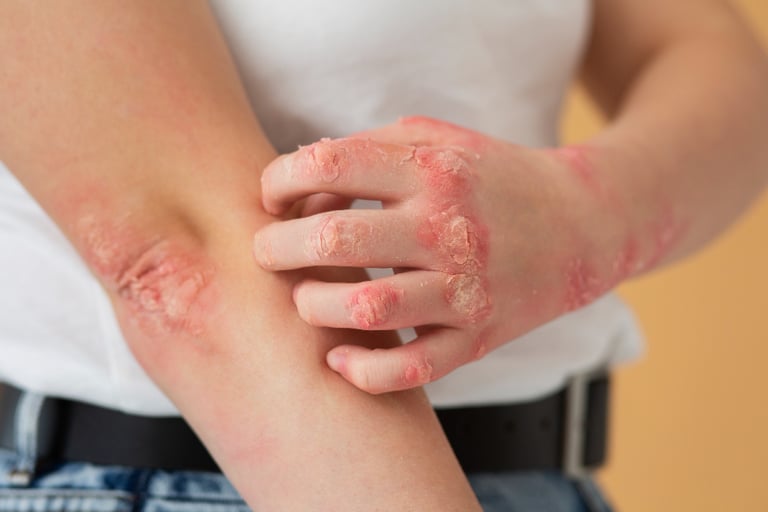

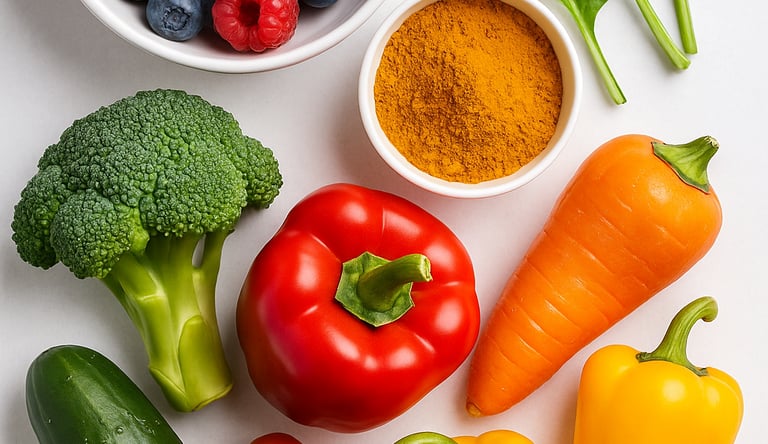

3. Probiotics for Gut Health
Research shows a strong link between gut health and skin health. Since eczema involves immune system imbalance, a healthy gut microbiome can help regulate inflammation and reduce flare-ups.
Best sources: Yogurt with live cultures, kefir, kimchi, sauerkraut, miso, tempeh.
Tip: Start with small amounts of fermented foods daily. If you’re sensitive to dairy, choose dairy-free probiotic sources like tempeh or kombucha.
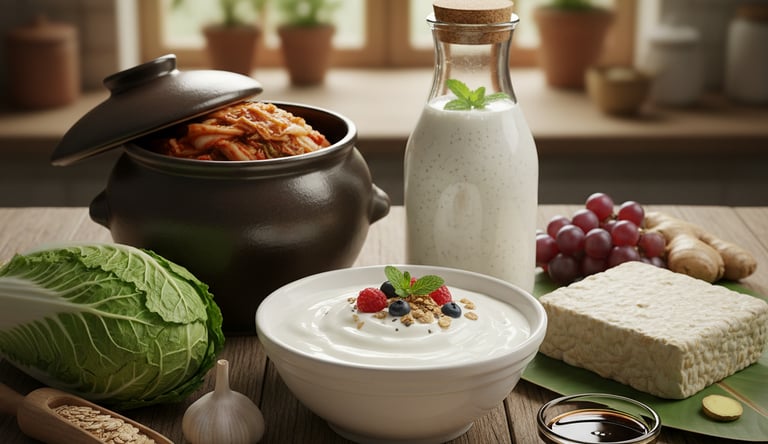

4. Vitamin D
Low vitamin D levels are associated with worse eczema symptoms. This vitamin supports immune regulation and strengthens the skin’s protective barrier.
Best sources: Sunlight exposure, fortified foods (like plant-based milks or cereals), and supplements if recommended by your doctor.
Tip: Aim for 10–15 minutes of safe sun exposure most days. For those who spend most time indoors, discuss supplementation with your healthcare provider.


Managing Eczema & Psoriasis: More Than Just Creams
As Dr. Priya Gill, Medical Director of Ranjit Skin & Hair Specialist Clinic, explains: “Managing eczema or psoriasis isn’t just about applying creams — it’s about embracing a whole lifestyle.”
An eczema diet, together with medical care, stress management, and consistent skin routines, can reduce flare-ups and restore healthier skin from the inside out.
Final Thoughts
Living with eczema or psoriasis can feel overwhelming, but you don’t have to manage it alone. With the right guidance and an eczema diet, you can calm flare-ups, strengthen your skin, and feel more confident every day.
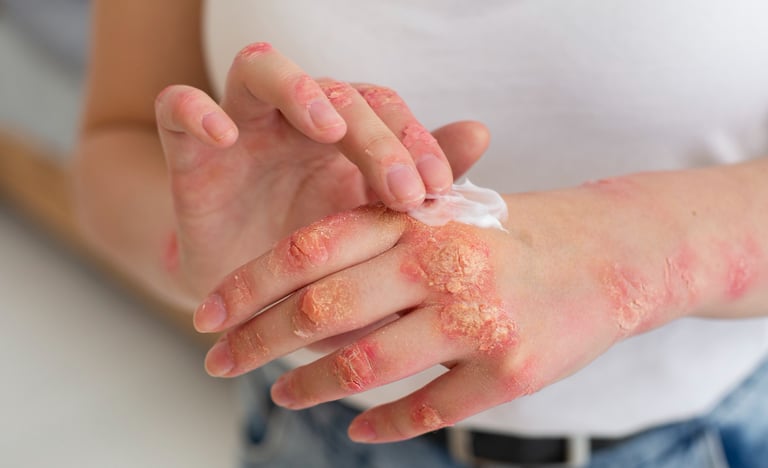

Expert dermatology and hair care solutions await.
Address
C4, Jalan SS15/4D, Subang Jaya, 47500 Petaling Jaya, Selangor
© 2025. All rights reserved.


Contacts
Clinic: +60356316090
Whatsapp: +60122794980
Email: klinikranjit16@gmail.com
